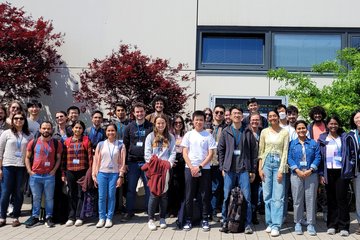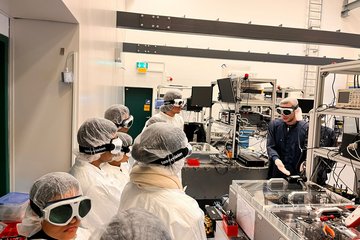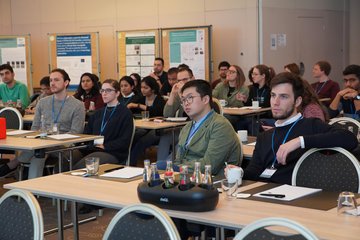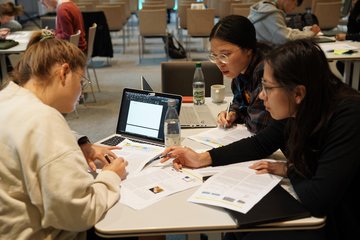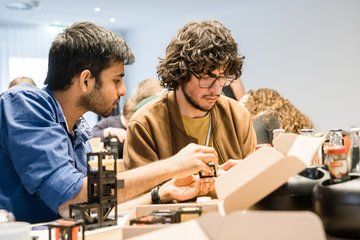MPSP Lecture Series 2025
Neuigkeiten aus der Photonikforschung aus erster Hand - nehmen Sie an den kostenlosen Vorlesungen unserer Fellows teil!
Die Wissenschaft des Lichts hat ebenso viele Facetten wie das Licht selbst - von der Nanophotonik über die Quantenoptik bis hin zur Starkfeldphysik gibt es unzählige interessante Forschungsfelder. In vielen von ihnen sind unsere MPSP-Fellows, also Forscher, aktiv. An Universitäten und außeruniversitären Forschungseinrichtungen arbeiten sie daran, dem Licht seine Geheimnisse zu entlocken und es für den Menschen in vielfältiger Weise nutzbar zu machen.
Und jetzt könnt ihr einen Einblick in diese Forschung bekommen! Von Oktober bis Ende November 2025 haben wir wieder jeden Mittwoch um 17 Uhr MEZ (= 15 Uhr UTC | 11 Uhr EDT | 20.30 Uhr IST) eine spannende MPSP Lecture Series für euch. Ein MPSP Fellow berichtet 45 Minuten über ihre/seine Forschung. Anschließend könnt ihr 15 Minuten lang Fragen stellen und diskutieren.
Die Vortragsreihe ist völlig kostenlos und findet virtuell über Zoom statt.
Vergangene Vorlesungen
Title: An Invitation to Quantum Entanglement
Abstract: Since Einstein and Schrödinger, entanglement is known as a mysterious phenomenon in quantum mechanics. Roughly speaking, two or more particles are entangled, if they can only be described globally and not by looking at properties of the single systems alone.
This leads to fundamental non-classical effects like the violation of Bell inequalities, but also to new applications in quantum communication or quantum metrology. In this talk I will give a short introduction into the phenomenon of entanglement and its characterization in photonic systems.
mehr
Title: What are optical metasurfaces and how to make it.
Abstract: The field of optics has undergone significant transformations over the centuries, with lenses remaining one of the most essential components in optical systems. Traditional lenses, which function by refracting light through curved glass or polymer materials, have been crucial for imaging, microscopy, and photonics as a whole. In recent years, advancements in electromagnetic simulations and nanotechnology have facilitated the creation of a new type of optical component—metalenses. In this presentation, we will delve into the details of creating and utilizing these innovative optical components.
mehr
Title: Quantum Metrology
Abstract: How precise can measurement truly get? Quantum metrology pushes the limits of accuracy by harnessing the strange power of quantum mechanics. We will learn how advances in this field are redefining the limits of measurement and understanding at the quantum scale.
mehr
Title: Non-classical frequency combs and spectral processing for quantum networks
Abstract: Imagine a world where light itself carries quantum information across networks. Non-classical frequency combs make this possible, enabling ultra-precise control of quantum signals. In this lecture we will discover how spectral processing is shaping the next generation of quantum communication.
mehr






